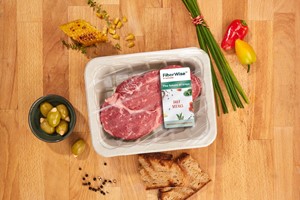In a groundbreaking initiative, researchers at Clemson University are transforming kudzu, the invasive vine known as "the vine that ate the South," into a promising material for sustainable food packaging. Led by Dr. Zhaoxu Meng, an assistant professor of mechanical engineering, the project aims to utilize biopolymers derived from natural and agricultural byproducts to create eco-friendly packaging solutions.
Kudzu, which spreads aggressively and covers vast areas across the southern United States, is being reimagined from a nuisance into a valuable resource. The cellulose found in kudzu, along with other biopolymers sourced from fruit seeds, peels, vines, and peanut shells, could revolutionize the food packaging industry. Unlike traditional plastic, biopolymer packaging is biodegradable and may offer additional benefits such as antimicrobial properties when materials like chitosan from shrimp shells are incorporated.
Dr. Meng's research could provide a dual benefit for sustainability: reducing plastic waste in landfills and oceans, while converting agricultural waste into useful products. “We want to show that food and agricultural byproducts that we normally see as waste and hard to discard could be used in food packaging, not only as normal protection but as packaging with multiple functionalities,” said Meng. “We also want to provide some momentum to show people that bio-based packaging has advantages over petroleum-based materials. We all want to aim for a better future.”
The research leverages advanced computational modeling and machine learning to predict how various biopolymer combinations will perform as nanocomposite materials for food packaging. This approach aims to streamline the research process, traditionally reliant on trial-and-error experimentation, making it faster and more cost-effective. However, physical experiments will still be conducted to validate the computational models.
The Clemson team plans to share their findings with Hartsville-based Sonoco Packaging Company and other stakeholders through peer-reviewed journals and scientific conferences. The project is supported by a three-year New Innovator Award from the Foundation for Food & Agriculture Research and the Clemson Sonoco FRESH initiative. Meng collaborates with Professor Scott Whiteside and postdoctoral researcher Sneh Bangar from Clemson’s Department of Food, Nutrition, and Packaging Sciences.
The implications of this research extend beyond food packaging. Meng anticipates that insights gained from studying biopolymers could be applied to tissue engineering, particularly through his work with the South Carolina Translational Research Improving Musculoskeletal Health (SC-TRIMH), a Clemson-based NIH Center of Biomedical Research Excellence.
This innovative project represents a significant step towards a more sustainable future in food packaging, turning problematic plant overgrowth and agricultural waste into environmentally friendly solutions.
news.clemson.edu













